An ultralight boat, or flying boat, is a hang glider wing mounted on a small inflatable boat with an outboard engine. The hull is made to meet rescue boat standards, the hull is designed for crosswind landings, and there is the capability to connect a parachute for emergency purposes. In the United States, it is not necessary to hold a pilot’s license to fly a boat of this nature, but there are industry groups who regulate their operation, such as the United States Ultralight Association (USUA). There are different ratings that have to be earned to drive a craft such as this, such as that of a Basic Flight Instructor (BFI). If you live outside the United States, you need to check with local air authorities for the most current regulations being enforced in your area.
There are many rules governing the flying of ultralight boats. If you are outside the U.S., you will need to check with local air authorities for your area. Inside the U.S., your craft cannot be rented out for profit, and it is unlawful to have a passenger aboard unless you are a rated instructor training a student. (Aerosports Connections has a website that may be able to provide more information on student training guidelines.) In the U.S., an ultralight boat may be flown in areas that meet requirements for ultralight aircraft, largely non-congested areas that are located in uncontrolled airspace. You may not fly near airports, nuclear plants, military bases, or cities, and you are not permitted to land your ultralight boat in state or national parks. It is also not generally a good idea to land on private lakes. The maximum cruising level for an ultralight boat in the United States is 8,000 feet, but many say 1,000 feet is an optimum altitude-trees can be cleared, but visibility is clear at this level, weather permitting. You must land and take off on water, and there needs to be about 200 feet of free water to take off or land and it should be an absolute minimum of six feet deep.In terms of ultralight boat safety, the best practice is to maintain the craft-keeping plenty of bulk outboard motor oil on hand–and respect the weather!
Did you like this? Share it:



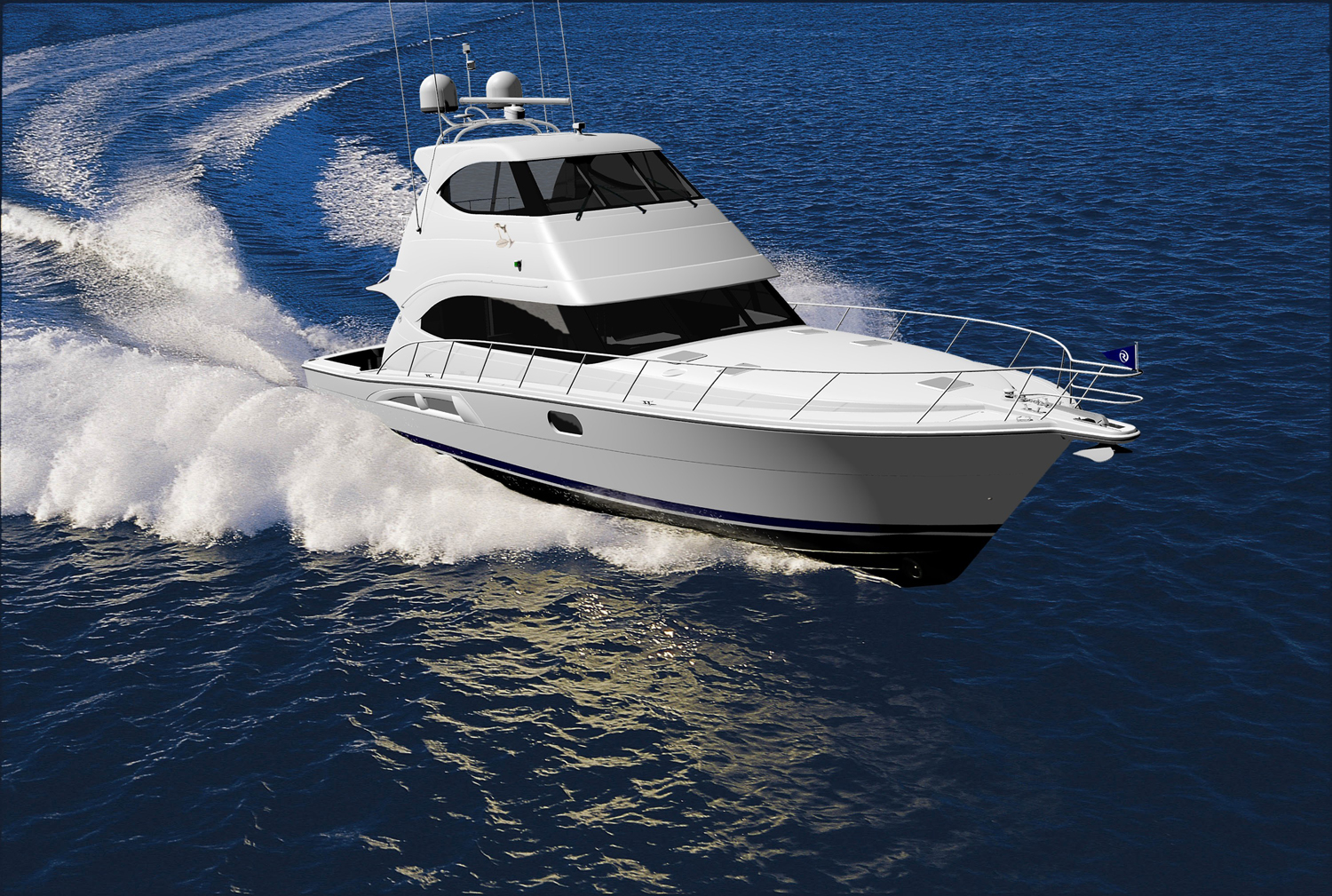


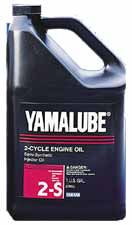
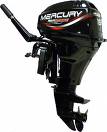 As autumn ushers in the cold weather that can be destructive to outboard motors, boat owners should think about the steps it takes to prepare their vessels for winter. The first step in getting an outboard motor ready for the winter is to remove all remaining gas from the carburetor – either by adding a gas stabilizer and running the engine until it dies, or draining and storing the gas for next season. Once the gas has been emptied, it’s safe to remove the motor and begin draining and refilling the lower gear unit.
As autumn ushers in the cold weather that can be destructive to outboard motors, boat owners should think about the steps it takes to prepare their vessels for winter. The first step in getting an outboard motor ready for the winter is to remove all remaining gas from the carburetor – either by adding a gas stabilizer and running the engine until it dies, or draining and storing the gas for next season. Once the gas has been emptied, it’s safe to remove the motor and begin draining and refilling the lower gear unit.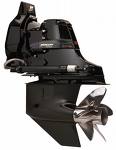
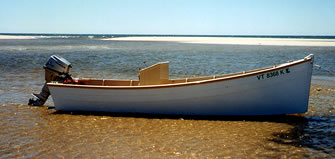

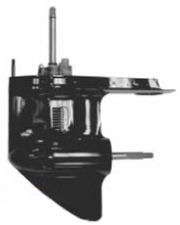 A sterndrive, or stern drive, is a form of boat propulsion also known as inboard/outboard or I/O. The upper unit engine is located inboard, just forward of the boat stern, producing power by way of a shaft that goes through the stern to the lower drive unit (also known as the outdrive) located outside the hull, which resembles the bottom half of an outboard. The lower drive unit carries the boat propeller and contains gearing for the engine system. This unit controls the steering of the boat, as with an outboard motor. No rudder is necessary. The sterndrive engine itself is usually the same as those used in true inboard systems. The most popular sterndrive engines have historically been Chevrolet and Ford V-8 car engines that have been adapted for marine use. The most popular brand of sterndrive is Mercruiser by Mercury Marine, who also manufactures outboard motors and
A sterndrive, or stern drive, is a form of boat propulsion also known as inboard/outboard or I/O. The upper unit engine is located inboard, just forward of the boat stern, producing power by way of a shaft that goes through the stern to the lower drive unit (also known as the outdrive) located outside the hull, which resembles the bottom half of an outboard. The lower drive unit carries the boat propeller and contains gearing for the engine system. This unit controls the steering of the boat, as with an outboard motor. No rudder is necessary. The sterndrive engine itself is usually the same as those used in true inboard systems. The most popular sterndrive engines have historically been Chevrolet and Ford V-8 car engines that have been adapted for marine use. The most popular brand of sterndrive is Mercruiser by Mercury Marine, who also manufactures outboard motors and 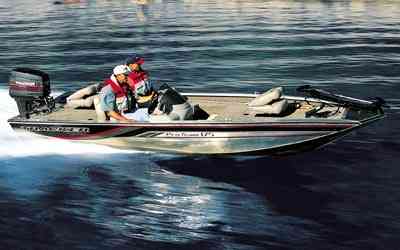
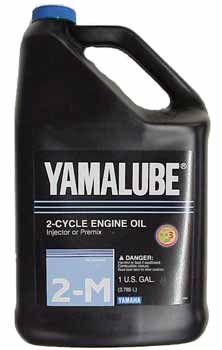 Yamalube oils are of such high quality that they often end up used as the standard test oil for many of the National Marine Manufacturers Association (NMMA) TC-W3® certifications. The long-term goals of the two-cycle outboard boating engine industry have been to reduce emissions from oil that has passed through engines, developing a quality of oil that reduces the necessary ratio of oil to fuel, and ultimately prolonging the life of the engine. When these goals are achieved, emissions are significantly reduced, which satisfies or exceeds EPA requirements. There are also less warranty and maintenance issues with customers in the long run. TC-W3® lubricant is an NMMA owned trademark. Evolving through the years with the help of exhaustive testing and research, it has not only proven to be the level of lubrication performance quality required, but has consistently exceeded EPA emissions reduction requirements as two-cycle outboard engines have moved toward higher cylinder temperatures and compressions and increasingly demanding conditions. NMMA sanctions only two cycle lubricants that meet or exceed stringent regulations in their own designated laboratories. Tests include a variety of performance-based measurements for fluidity, lubricity, viscosity, carbon buildup on engine pistons, and ring sticking. The chemical makeup of the TC-W3® oils vary due to the unique additive packages incorporated into each individual oil brand. TC-W3® oils are recognized worldwide as being recommended for use by two cycle oil makers.
Yamalube oils are of such high quality that they often end up used as the standard test oil for many of the National Marine Manufacturers Association (NMMA) TC-W3® certifications. The long-term goals of the two-cycle outboard boating engine industry have been to reduce emissions from oil that has passed through engines, developing a quality of oil that reduces the necessary ratio of oil to fuel, and ultimately prolonging the life of the engine. When these goals are achieved, emissions are significantly reduced, which satisfies or exceeds EPA requirements. There are also less warranty and maintenance issues with customers in the long run. TC-W3® lubricant is an NMMA owned trademark. Evolving through the years with the help of exhaustive testing and research, it has not only proven to be the level of lubrication performance quality required, but has consistently exceeded EPA emissions reduction requirements as two-cycle outboard engines have moved toward higher cylinder temperatures and compressions and increasingly demanding conditions. NMMA sanctions only two cycle lubricants that meet or exceed stringent regulations in their own designated laboratories. Tests include a variety of performance-based measurements for fluidity, lubricity, viscosity, carbon buildup on engine pistons, and ring sticking. The chemical makeup of the TC-W3® oils vary due to the unique additive packages incorporated into each individual oil brand. TC-W3® oils are recognized worldwide as being recommended for use by two cycle oil makers.
 Just as consumers were starting to breathe easier, gas prices took a huge hit as Hurricane Ike slammed into the Gulf Coast over the weekend. Areas hardest-hit by the sudden and steep increase included Michigan, a state already riddled with economic hardships in Detroit.
Just as consumers were starting to breathe easier, gas prices took a huge hit as Hurricane Ike slammed into the Gulf Coast over the weekend. Areas hardest-hit by the sudden and steep increase included Michigan, a state already riddled with economic hardships in Detroit.